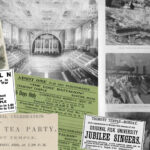The last lynching of a black man in Missouri happened on a Sunday. During church. In front of a church.
The victim was Cleo Wright, who allegedly broke into a house where two white women were staying around 1:00 a.m. on Sunday. During the attack, one of them—Grace Sturgeon—was slashed deeply across the abdomen and three of her fingers were nearly taken off.
Soon after, police found Wright spattered with blood and carrying a bloody knife. He said he’d been in a fight with another man but, after a struggle, he was arrested and taken to jail. By late morning, an angry mob had gathered, some joining in when they saw the commotion on their way to church.
The mob shoved their way into the jailhouse, grabbed Wright, dragged him behind a car through the African American side of town, then doused him with gasoline and burned his body in front of two black churches.
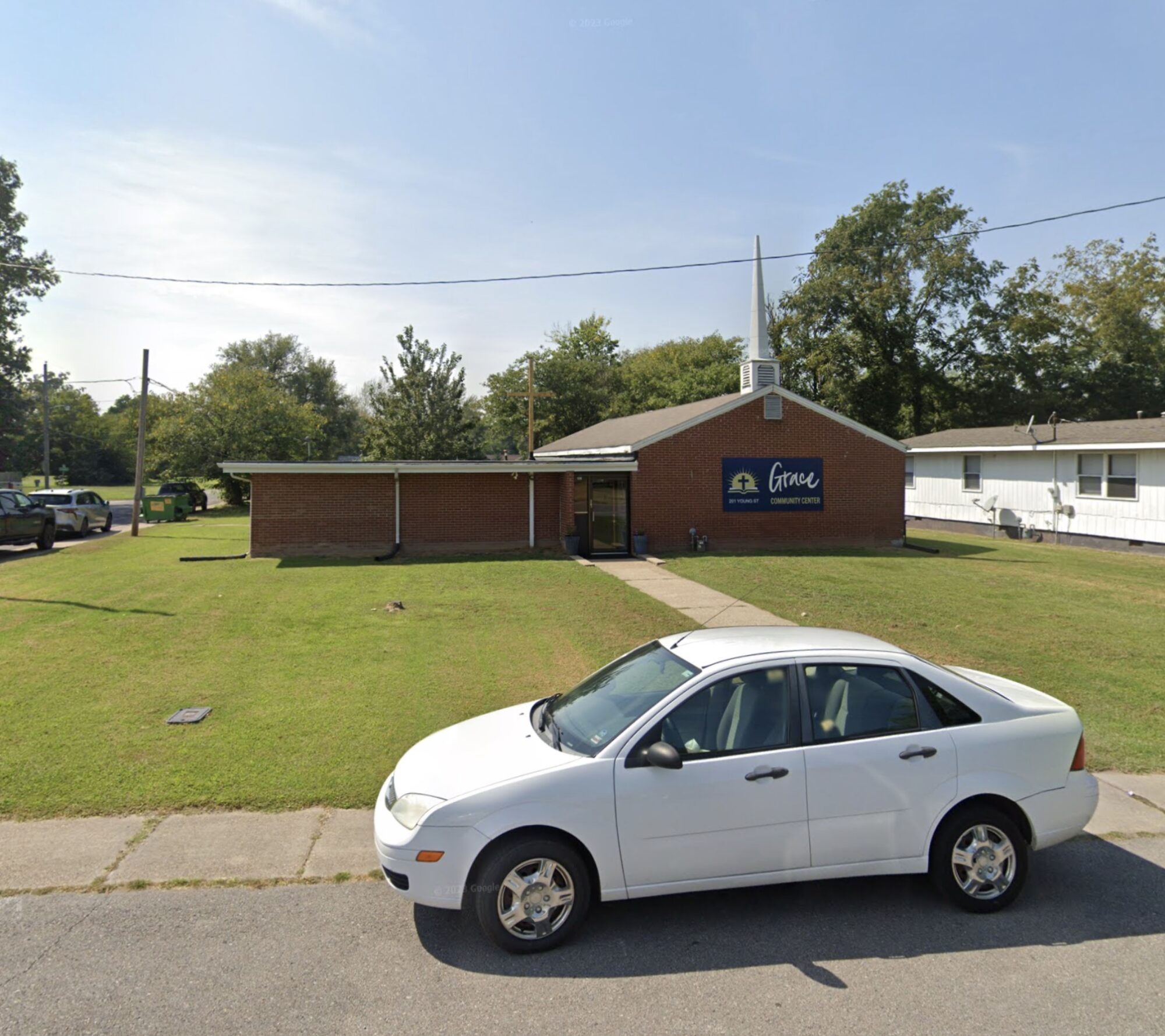
One of those churches was Smith Chapel United Methodist. At first, pastor J. B. Ross thought the smoke was a burning car. He ignored it and kept on preaching until someone came in from the street with the news of what was happening.
Most of the lynchers who were later named didn’t attend church, though one had been baptized at the 1,000-member First Baptist Church several years earlier. Later, one of the police officers also joined the congregation.
About 20 years after Wright’s death, members of First Baptist started Trinity Baptist. Ten years later, the Trinity congregation called a pastor with a heart for racial reconciliation. Thirty years later, they called a pastor and his wife whose adopted African American sons sparked an even deeper desire for a gospel-preaching, multiethnic congregation.
Across town, at Smith Chapel, the congregation was also calling a pastor who longed for a biblically faithful, racially diverse church.
In 2017, the two pastors connected, and they eventually led their churches through a merger. Today, the congregation worships in the little chapel a few hundred feet from where Wright was killed. Together, they sing, serve, and have broken ground on an ambitious $4.5 million community center for their underresourced neighborhood.
“God sees the beginning and the end,” pastor Kenny King said. “This is what he does—more than we can ask or imagine.”
Kenny King
King was born in Sikeston and grew up going to Smith Chapel. But when he left for college in 1997, he didn’t plan to return to either one.
That’s not too hard to understand—with a population of 16,000, Sikeston doesn’t offer a lot of economic opportunities for an ambitious young black man. The poverty rate for black residents is nearly 37 percent, more than three times higher than the national number for all races. On top of that, Sikeston is unusually violent—the rate of murders, rapes, robberies, and assaults regularly soars above the national average.
Smith Chapel also wasn’t appealing to King.
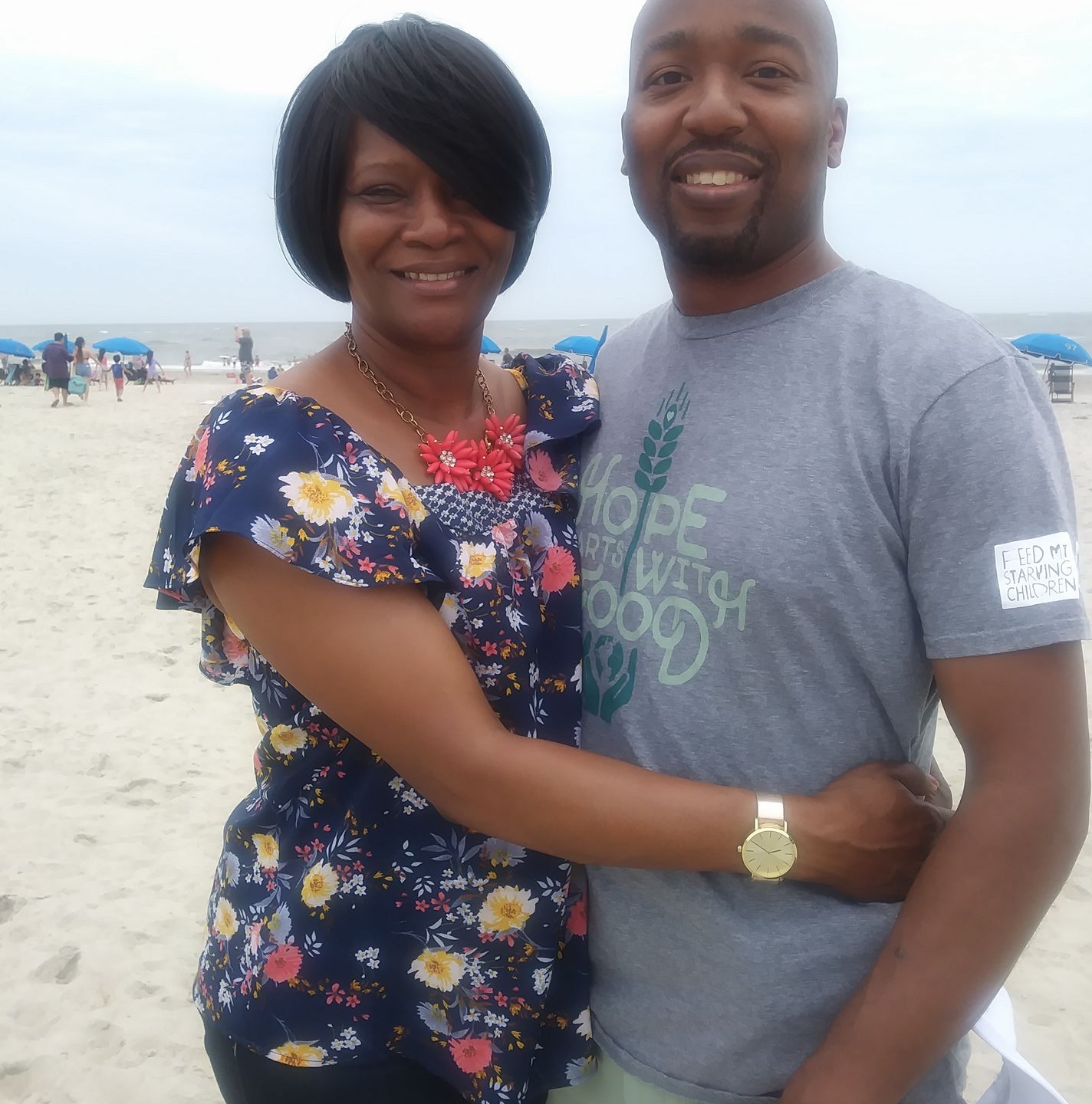
“When I was in college, I became an anti-theist,” he said. “I hated the idea of God and of religion. It seemed odd to me that bad things happen to good people and good things happen to bad people. I didn’t like that, so I rebelled against it.”
But King’s logical mind also knew that evolution couldn’t explain the complicated beauty of the natural world. And if there was a God, it followed that humans should work to be good enough to please him. So after college, he told God he’d go to church just as soon as he got his life together.
When a couple years passed and King was no closer to getting his life together, he submitted it to the Lord. He spent the next few years at an Evangelical Free church in the suburbs of St. Louis, reading Francis Chan, Tim Keller, and John Piper and learning how to lead small groups, be an elder, and plant a church.
“I didn’t want to go back to Sikeston at all,” King said. “But God, in his sense of humor, gave me a calling to Sikeston.”
This became especially clear after Michael Brown was killed in Ferguson, just 15 minutes from where King lived.
“Sikeston has a sordid history when it comes to race relations, and I felt like the town needed a diverse church,” King said. One of his favorite things about his St. Louis congregation, besides the solid theology, was the racial diversity.
“If the church can’t be together, then how is the world going to be together?” he reasoned. “If we believe Christ is the hope of the world, the church should lead the way in reconciliation.”
Got it, King thought. The Lord will use me to plant a diverse church that will give him glory and show people the beauty of Christian unity.
But that wasn’t what happened.
Smith Chapel UMC
King had barely gathered a core church planting team when the pastor at Smith Chapel retired. Never large, the church had shrunk to about 25 weekly attendees.
The congregation asked if he’d consider filling it. King, who didn’t want an all-black church and didn’t agree with Methodist theology, said he’d think about it.
“I went through the process basically trying to sabotage myself,” he said. “I was really honest and blunt about how I felt about the denomination and the church. I thought there was no way anybody would want me there, and I could go back to church planting.”
He told them he believed in the Bible’s inerrancy, in complementarianism, and in believer’s baptism. A few months later, Smith Chapel called him to be their pastor.
“At a certain point I realized this is something God wants to happen,” King said. “Maybe I’d have an Isaiah ministry of preaching judgment or something. Maybe I’d close the doors. I didn’t like that idea, but if that’s what God was doing, I’d do it.”
He was just as straightforward in the pulpit as he was in the candidate interviews.
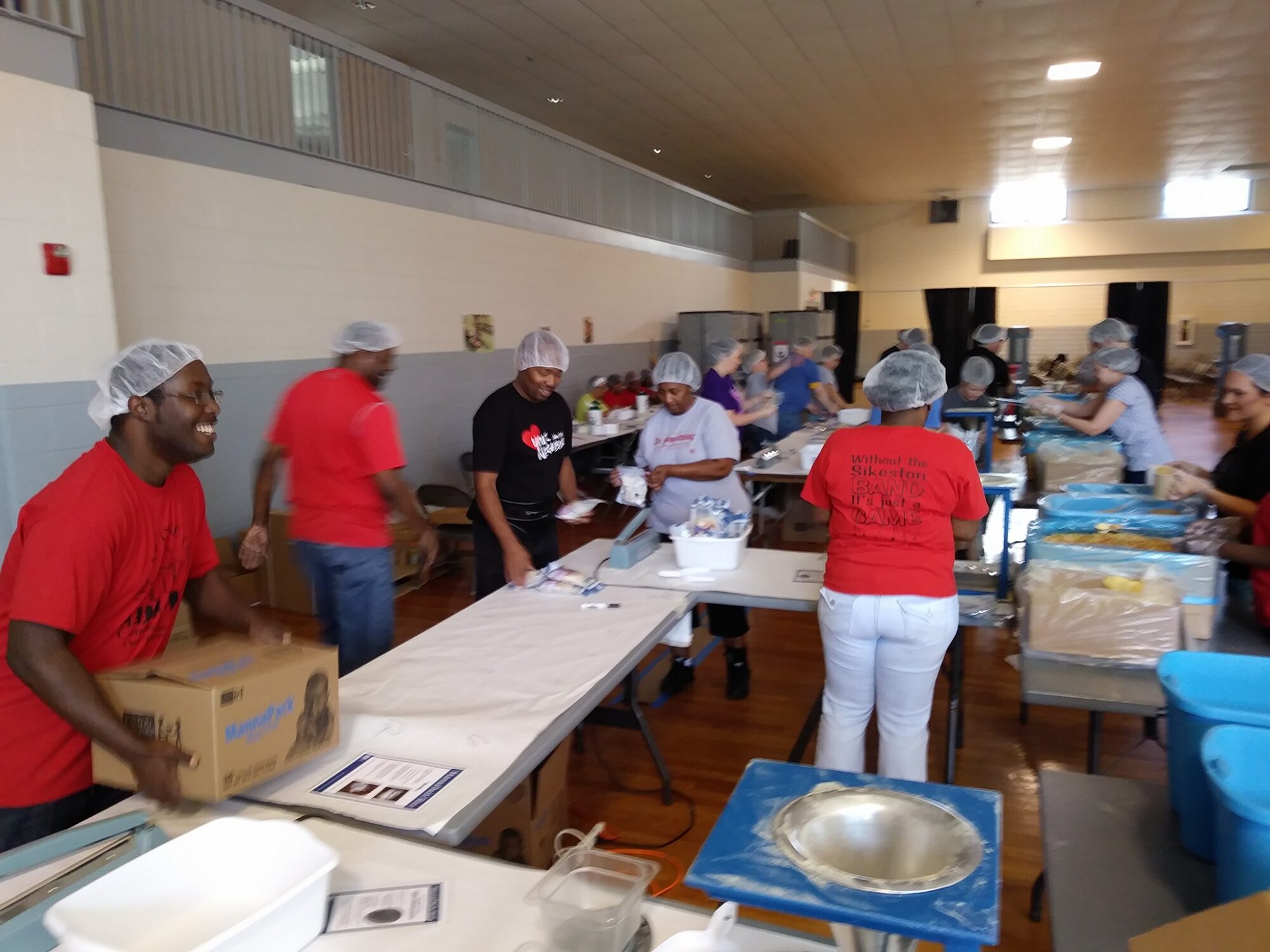
“My first series was systematic theology—the basics of the faith, who God is, what the Bible is, how we’re supposed to feel about the Word of God,” King said. After that, he began preaching through Matthew.
“We got rid of the extra-curriculum that came from the denomination and studied the Word,” King said. “The people soaked it up.”
Next, King knew he was going to have to deal with the mainline United Methodist Church (UMC). The church of John and Charles Wesley was rapidly losing its theology and its members. Trying to figure out what exactly was going on, King joined some regional committees.
“I found the problem was more deeply rooted than I could’ve imagined,” he said. “I could preach the Word and uproot some of the falsities my congregation holds to. But while I can probably turn a fishing boat, I can’t turn an aircraft carrier.”
Smith Chapel, which had been planted by the UMC in 1923, was going to have to figure out a way out.
Trinity Baptist
Across town, pastor William Marshall came to Trinity Baptist Church fresh out of seminary. It wasn’t an easy transition—the previous pastor had served for 30 years. William and his wife, Glenna, were from out of town. And the couple was just beginning a struggle with infertility.
“I didn’t know what I was doing half the time,” Marshall said. Trinity, which had about 100 members when he arrived, began to shrink, especially when it became clear Marshall was preaching longer sermons than the previous pastor and wanted to have communion every week. About eight years later, when he attempted to slowly move the church toward a plurality of elders, some saw it as a power move. Attendance shrank even more.
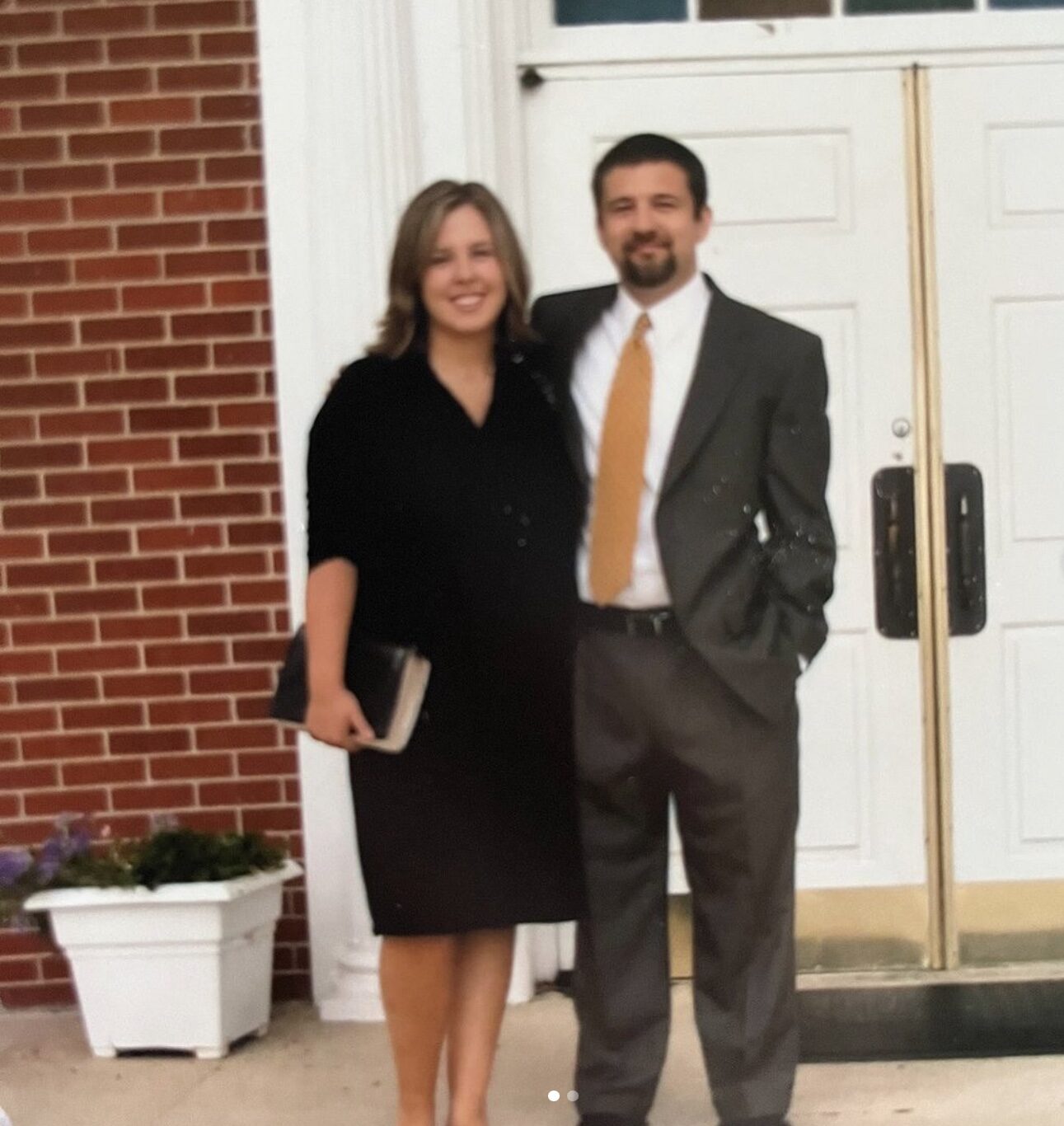
“The first 10 years were really hard,” he said. “I couldn’t go to Walmart without running into ex–church members.”
But while his church was contracting, his family was expanding. In 2008, the Marshalls adopted an African American baby boy named Isaiah. Seven years later, they adopted Ian, who is biracial.
Marshall started to notice the lingering segregation in Sikeston—the white pastors’ group was separate from the black pastors’ gathering. At the local school, white fans and black fans sat on opposite ends of the bleachers during basketball games.
But his biggest worry as a new father wasn’t that his boy wouldn’t know where to sit in the bleachers, or even that he might be unfairly pulled over by the cops or discriminated against at work.
“I didn’t want Isaiah to think Christianity was a white man’s religion,” said Marshall, who felt this so deeply it still makes him cry a little. But what could he do? He was the white pastor of a predominately white church.

“I began to pray, Lord, I don’t even know how to address this or what to do.”
At the same time, Trinity was beginning to hold evangelistic meetings in the parks around Sikeston. On Sunday nights, members would light up a grill, walk around the neighborhood, and invite people for free hot dogs and a church service.
“We’d have some food, a brief gospel conversation, and some songs people love,” Marshall said. “When we went to the park on the west end of Sikeston—which is the African American community park—we had such a good response that we decided to go there all the time instead of rotating around.”
In fact, the response was so good that one summer Trinity hosted a VBS in that park. But the location wasn’t a natural fit—it was “about as far away from our church building as you could get and still be in Sikeston,” Marshall said. “I began praying for a church in the neighborhood that we could partner with.”
Fields of Faith
In 2017, the local Fellowship of Christian Athletes asked King if he’d speak at their Fields of Faith youth conference. He preached on Ephesians 2.
“I saw the speaker was a black man, and I was like, Oh, man, I’m interested,” said Marshall, who brought some of the Trinity youth group to the event. “He’s quoting Francis Chan, and I’m leaning in. I’m like, What does this guy believe about the gospel? And it was solid.”
Marshall wasn’t even in the parking lot before he pulled out his phone.
“On my way back to the car, I was looking him up on Facebook,” he said. “I sent him a message—‘Hey, I’m a pastor in town and heard you at Fields of Faith. Let’s get lunch together.’”
Kenny said sure.
Everything Happens at Lunch
At their first lunch, Marshall asked King which church he served.
“Smith Chapel United Methodist Church,” King said.
Well, that’s the end of that, thought Marshall, surprised and disappointed. Maybe King wouldn’t be the ministry friend he was hoping for.
Marshall tried again: “In order for your church to be healthy, what needs to happen?”
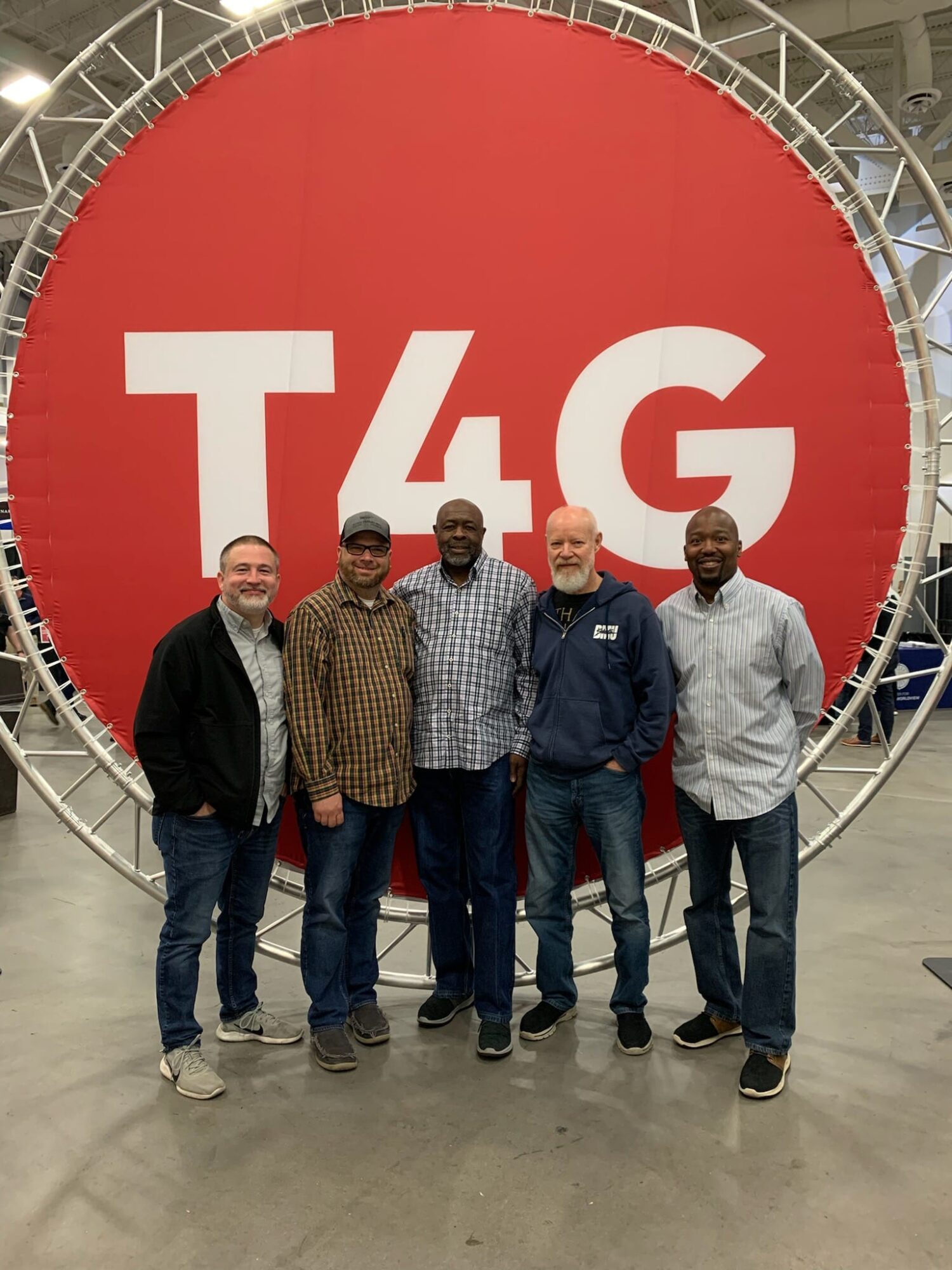
King didn’t even hesitate. “We need to leave the denomination.”
OK, this guy is who I thought he was, Marshall thought.
They started meeting monthly for lunch, talking about theology, ideas for ministry, and preaching. King talked about the process of buying his building from the UMC. Marshall talked about the revitalization process of the Southern Baptist Convention (SBC)—because Trinity was small, they’d offered to be guinea pigs for some new ideas.
One of the ideas was merging with another church. Immediately, Marshall had thought of King. When he ran the idea past a church member, expecting him to laugh, the man told him it would be “incredible.”
So a few weeks later, again at lunch, he threw the idea at King.
“What are you going to do after you leave the UMC?” Marshall asked him. And then, “What would you think about merging with us?”
He was nervous to say it. But if King said it was ridiculous, Marshall figured they’d just laugh and keep eating their barbecue.
King didn’t say no. Is this God’s way of giving me the diverse church I desired in Sikeston? he thought.
Probably not. He was already pushing his people out of their denomination. There was no way they were going to merge with a Southern Baptist congregation.
“Let me ask my church,” he said.
Tyrone White
Tyrone White was born into the Smith Chapel family, but that doesn’t mean he spent all his Sundays in church.
“I went to the Marine Corps in 1981, and when I came back I was a street guy,” he said. “I was all about the world.”
Though he was drinking a lot of alcohol, doing a lot of drugs, and sleeping with a lot of women, White felt he was a pretty good person. After all, he hadn’t killed anybody.
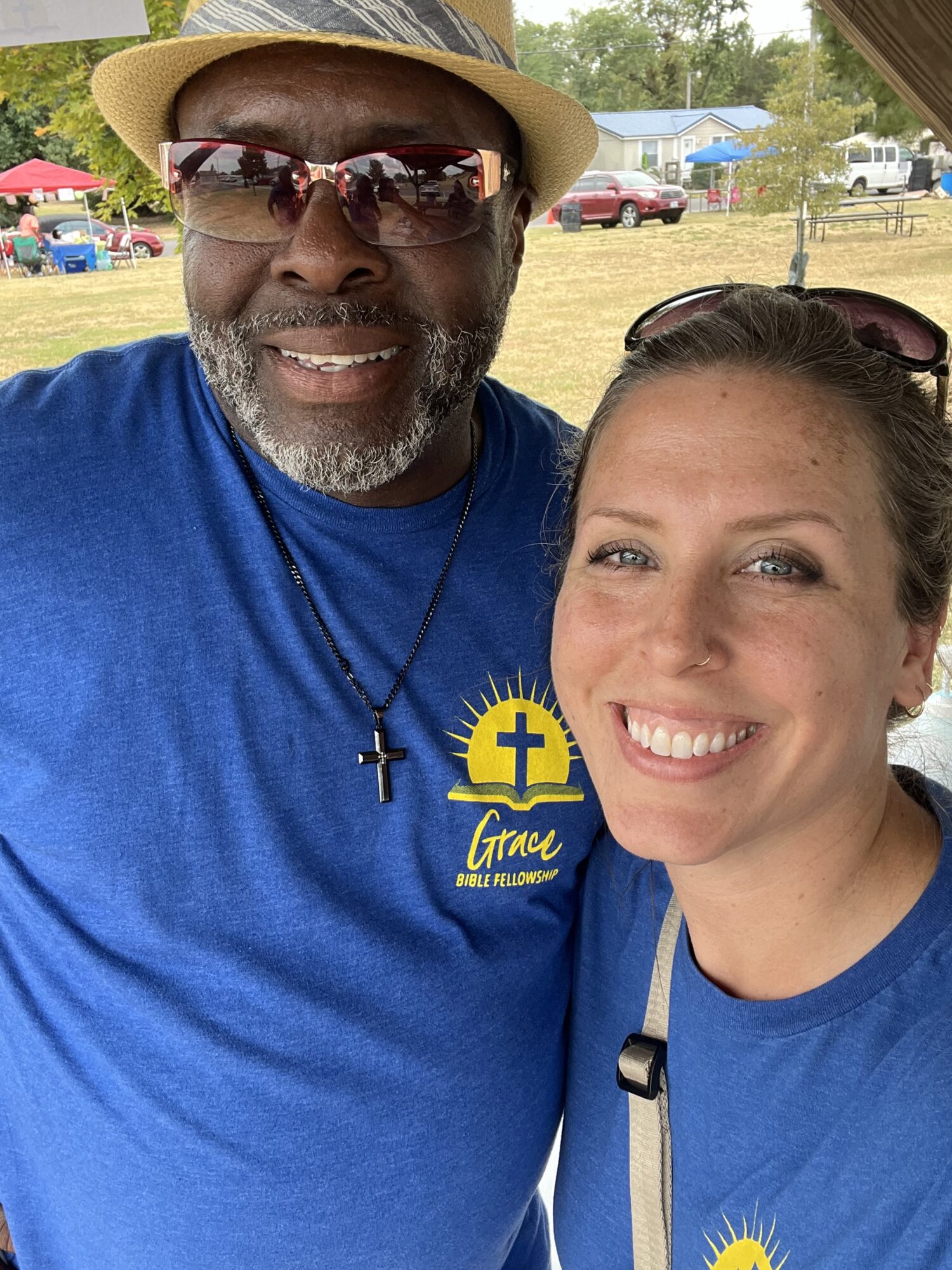
He was 51 when he seemed to hear a voice in his head: This is no longer fun for you.
“I’m thinking I’m tweaking,” he said. “But it happened again: This is no fun for you.”
White knew that wasn’t his idea—he’d always scorned the boring lives of husbands and wives who worked jobs, ate dinner together, and went to church. But the voice was right; his life was no longer fun.
“I told myself I’ve got to stop doing cocaine, but I can still drink,” White said. “But God took the taste out of my mouth. To this day I haven’t had a drink or a snort of cocaine.”
White began reading the Our Daily Bread devotional, then the Bible. He began sitting in the back—and then the front—of Smith Chapel listening to King preach.
“I wasn’t trying to change,” he said. “God changed me.”
One thing the new version of White did was walk the track in the YMCA in the mornings. He liked the white guy who checked him in, because he was always singing gospel songs. But at first, he was scared of the other white guy with a beard who walked the track at the same time he did.
“I see white men with a beard, and I think biker KKK,” he said. But, White continued, “He spoke kindly to me.” The man’s name was Barry Wallace, and the two struck up an early morning, walking-and-talking friendship.
So when King started talking about merging with a white church, White was game. And when the two congregations tried worshiping together, White was ecstatic.
“These people come to our church, and there is Barry Wallace,” he said. “And the white guy at reception was William the pastor. My mouth dropped open. I was dumbfounded. I was singing in my heart.”
White was probably the most enthusiastic about the merger. But the rest of the people weren’t far behind.
Enthusiasm for Change
“I was totally shocked by how open the people were,” King said. “I’m always wondering in the back of my mind if they’re saying things because I’m saying them, and they don’t want to come against the pastor. . . . But they were excited about it. We do a prayer meeting every Tuesday morning, and we had the most participation during that time.”
He explained to them the history of the SBC, which was formed in 1845 to support slavery but has since publicly repented. His congregation asked if they were bearing fruit in keeping with repentance. He said he thought they were.
“There was a church merge in Iowa a little before we merged,” King said. “I printed out that story and gave copies to everybody. It was very encouraging for them. And I’d been preaching from the Word of God about how the church should look, so their hearts were bent towards it.”
Meanwhile, in a meeting at Trinity, deacon Brandon Blankenship stood up and chronicled the ways God had been preparing them—from the previous pastor’s love of racial reconciliation to Isaiah and Ian to the outreach in the West End.
“It was almost like the whole room had our blinders taken off,” Marshall said. “There was almost an audible sigh, where we went, ‘Yes. That’s what the Lord’s been doing.’”
Neither congregation wasted time messing around. The first official conversation about merging was in June, and in mid-September, the two churches launched as Grace Bible Fellowship.
For the first six months, everything was great.
COVID-19
It made sense for Smith Chapel’s congregation to drive over to Trinity. The larger sanctuary could seat 300, and there was plenty of space for parking and rooms for children’s programming.
The merge was unusual enough to make the news, and people were curious.
“Community people were coming—people we’d never seen before,” said Grace Bible Fellowship member Christie Rodgers. “They wanted to see what this was all about. Then it was March of 2020, and all of that ended.”
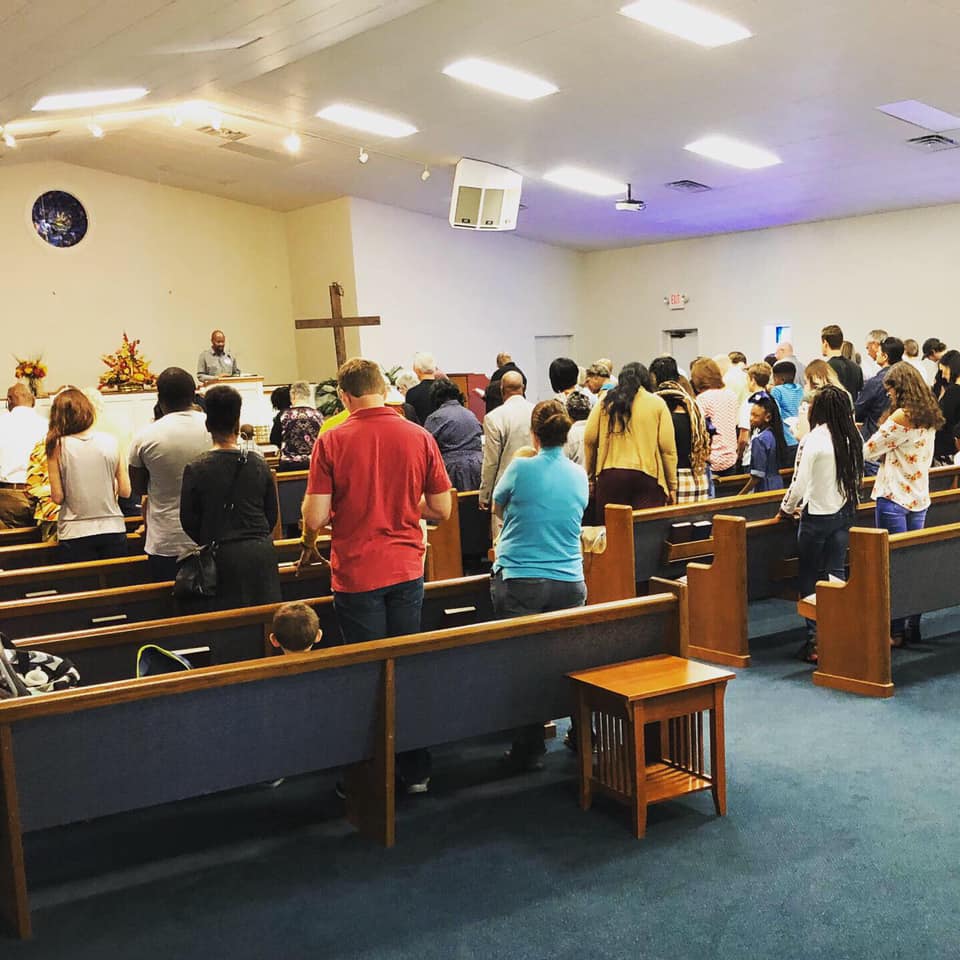
For many churches, 2020 was was a hard year for church unity. You might expect the fights to be exponentially worse at a brand-new merger of a black church and a white church, coming from two different denominations, with different feelings about masks and risks and death rates, in a town with an ugly racial history.
Instead, “it felt like a congregation who trusted its leadership would work through things and communicate,” Blankenship said. “I don’t think there was really any question—we were going to do whatever our leadership thought was best.”
The leaders, for their part, kept preaching through the Bible.
“The pastors didn’t make it about social issues,” Rodgers said. “They said ‘Love each other’ and ‘How are we going to love each other?’”
Together, they socially distanced, checked on each other, and packed meals to hand out from the church building once a week.
“Our people understood the gravity of what we were doing, and we didn’t want to bring disrepute to Christ’s name,” King said.
Eerily Similar
If the COVID-19 unity was surprising, so was the ease of combining the worship services. In general, black churches and white churches have different preaching and singing styles. But Smith Chapel wasn’t typical.
“We didn’t get up and do clapping and stuff,” White said. “We were Methodist. Our music was from the hymnal. We didn’t have that rocking beat like most black Baptists have.”
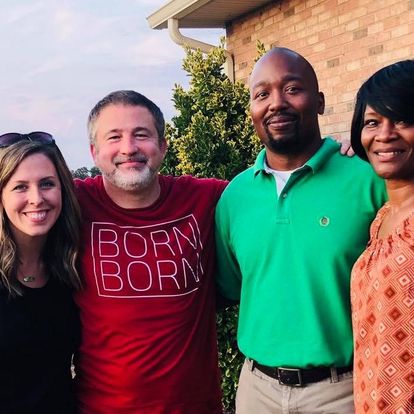
When Marshall made a list of the top 25 favorite songs from each congregation, more than half were the same.
The pastors’ preaching habits were also oddly similar.
“It was really weird,” Marshall said. “We’d even use the same phrases. The very first time Kenny preached at Trinity, everybody’s looking at me like, Did you tell him to say that?”
Not only did the two pastors agree on major issues such as biblical inerrancy and the doctrine of God and salvation, but they also agreed on a plurality of elders, the gifts of the Spirit, and church membership.
“We had to work hard to find tertiary issues we disagreed on,” Marshall said.
So even though you’d never predict it, everything at Grace Bible Fellowship was going smoothly. The brand-new congregation had weathered a global pandemic and national racial unrest with barely a peep. They’d seamlessly joined their worship services. They had more paid-off property than they needed.
But something wasn’t quite right.
Grace Bible Fellowship
Both halves of Grace Bible Fellowship wanted to minister in the West End. But the merger hadn’t actually helped with that.
“The last thing I wanted to do was take a good, faithful, Bible-preaching church out of the West End,” Marshall said. “We began to say, ‘What do we do now?’”
It was easy to dream: the congregation wanted to build a place in the West End where they could not only worship on Sunday but also host after-school tutoring programs, run a food ministry, and let neighborhood kids play basketball during the week.
That was going to cost a lot of money, which Grace Bible Fellowship didn’t have. But they did have property. They had the Trinity building appraised. Then they hired a realtor, who told them it was hard to sell a church building and that it might take more than a year.
“Before we got Trinity even listed, another church offered us more than it appraised for,” King said.
With the money from the property—plus a sizable grant—Grace Bible Fellowship bought land and broke ground on a new church and community center in the West End. The project should be complete by September 2025.
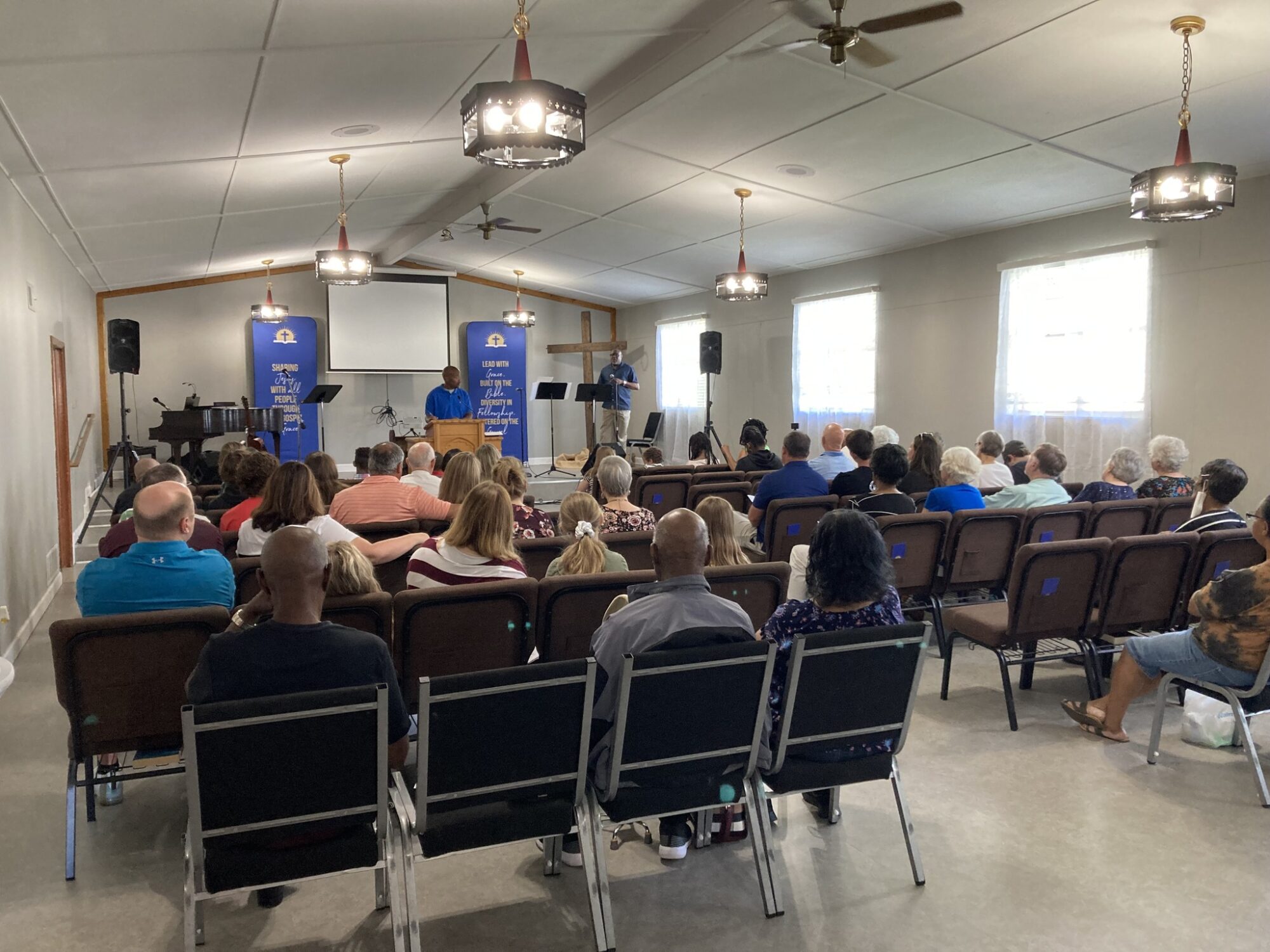
Until then, the congregation meets in Smith Chapel, which is only three blocks away.
“On that first Sunday, we realized we can hear one another singing so much better in the confined space,” King said. “It was so glorious—everybody was blown away from the time that first song rang out. We all looked at one another, or went into full arms-up, looking to heaven.”
The singing is so loud that Rodgers wonders if people passing by outside can hear them. “You just feel close—a happy closeness,” she said.
She can’t wait to share that with the neighbors.
“We’re looking forward to being able to really invite the community in,” Rodgers said. “We’re constantly inviting them to worship with us now, but sometimes you need to be able to draw them in with other things too.”
“We want to sit down next to somebody watching their kid playing basketball and ask if they want to come back for church on Sunday—and bring the kids,” Marshall said.
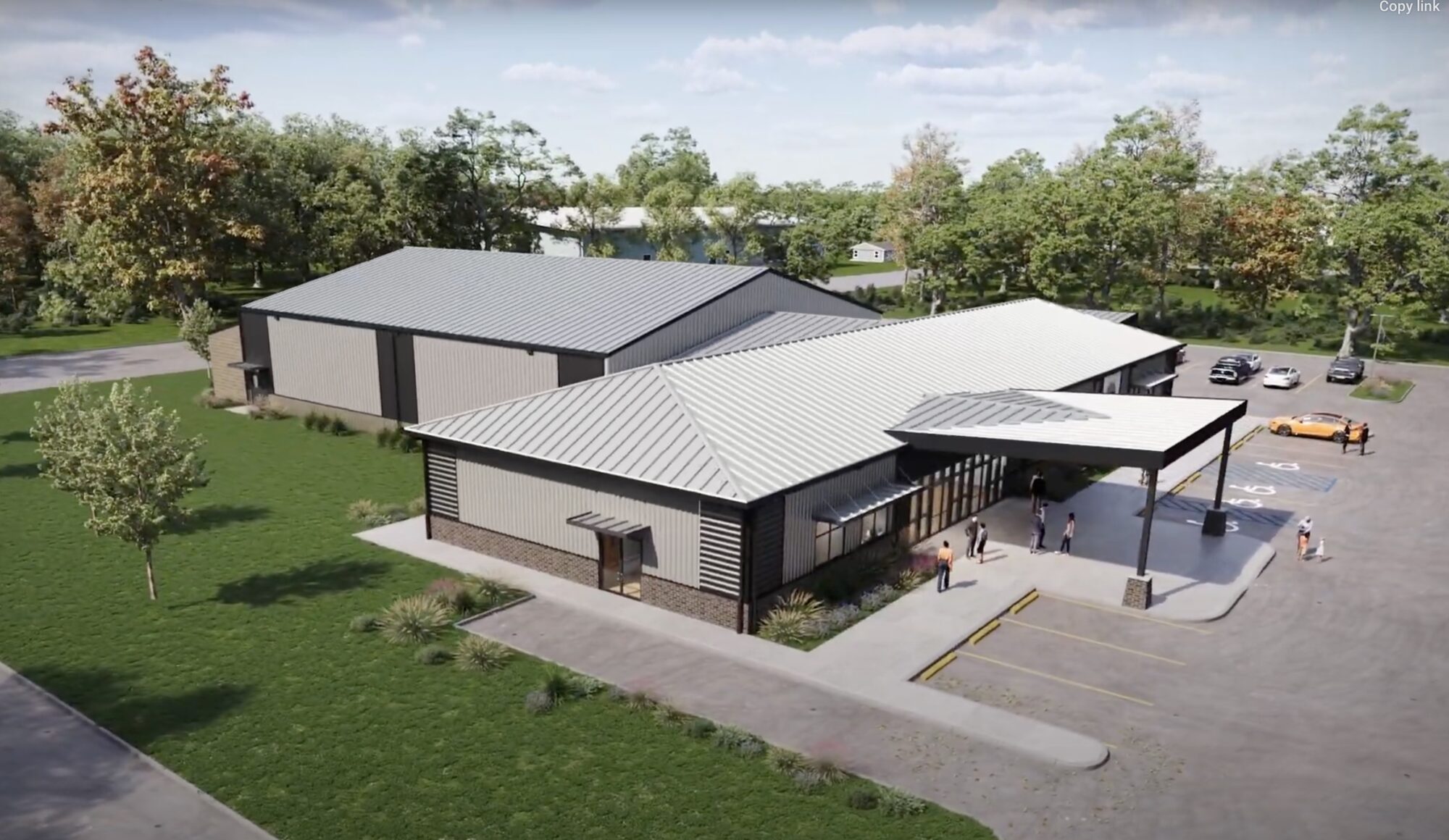
The neighbors are already looking forward to the possibilities—a gym, laundry facilities, a daycare.
It’s a huge accomplishment for a church that has 70 weekly attendees, counting kids.
“You want to be where God is moving,” Blankenship said. “You don’t want to ever limit what God can do. You want to be open and receptive, because if you trust in him, he’ll take you places you never even dreamed of. That’s a good lesson for all of us.”
“It is all God,” White said. “God is doing a marvelous work in us and through us—and he will do it until the end.”
Try Before You Buy: FREE Sample of TGC’s New Advent Devotional
 Choosing the right Advent daily devotional can be tough when there are so many options. We want to make it easier for you by giving you a FREE sample of TGC’s brand-new Advent devotional today.
Choosing the right Advent daily devotional can be tough when there are so many options. We want to make it easier for you by giving you a FREE sample of TGC’s brand-new Advent devotional today.
Unto Us is designed to help you ponder the many meanings of this season. Written by TGC staff, it offers daily Scripture readings, reflections, and questions to ponder. We’ll send you a free sample of the first five days so you can try it out before purchasing it for yourself or your church.










